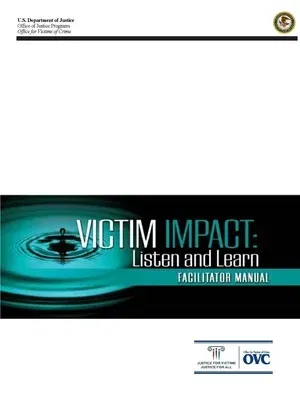U S Department of Justice
(Author)Victim Impact: Listen and Learn (Facilitator Manual)Paperback, 16 July 2019

Qty
1
Turbo
Ships in 2 - 3 days
In Stock
Free Delivery
Cash on Delivery
15 Days
Free Returns
Secure Checkout
Print Length
88 pages
Language
English
Publisher
Lulu.com
Date Published
16 Jul 2019
ISBN-10
0359795242
ISBN-13
9780359795246
Description
Product Details
Author:
Book Format:
Paperback
Country of Origin:
US
Date Published:
16 July 2019
Dimensions:
27.94 x
21.59 x
0.46 cm
ISBN-10:
0359795242
ISBN-13:
9780359795246
Language:
English
Pages:
88
Publisher:
Weight:
226.8 gm

